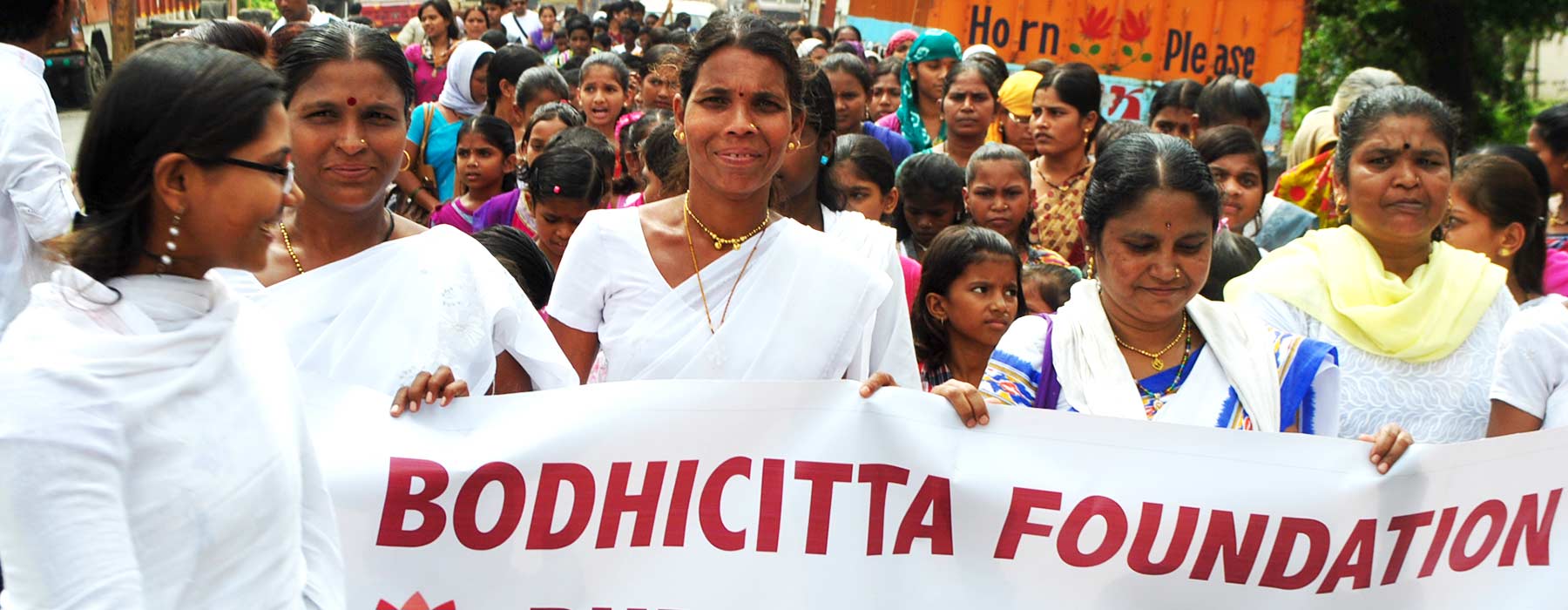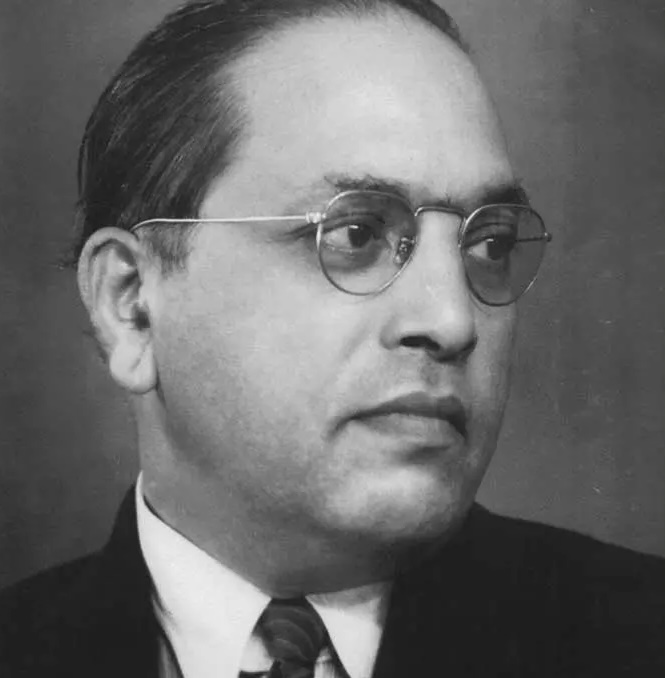Our history
The Bodhicitta International Socially Engaged Buddhist Community is a separate (but affiliated) organisation in Australia and India. They offer Mahayana Buddhist teachings, retreats, and spiritual activism. The community has a goal of creating meaningful spiritual connections between Buddhist Practitioners, and a sense of connectedness with the wider community through chaplaincy, counselling, and Sunday Schools. They aim to take Buddhist compassion and teachings to share with the world. The organisation only teaches those people who come to them, or are already Buddhist. They also support non-Himalayan monastics, empower and train women and future Buddhist teachers, and help those interested in staying connected to issues of social justice in the world. This, along with their engagement of compassion and practical actions, helps to relieve the suffering of the world and obtain their spiritual goals.
Our Founder
Ayya Yeshe Bodhicitta ordained as a nun in 2001. She discovered Buddhism while travelling in Nepal and India at the age of 17 on a search for the meaning of life. Coming back to Australia after a year of study and practice in monasteries, she helped run a Buddhist Centre in Sydney, while simultaneously training with her teacher Khenpo Ngawang Dhamchoe over the span of five years.
Upon ordination as a nun at the age of 23, Venerable Yeshe found (like the majority of Western monastics before her) that there was very little care or support for Western monastics; people preferred to access Tibetan Lamas who were already trained. She had nowhere to live, and had to beg on traditional alms to get food, and was forced to stay with various friends and in garden sheds. She engaged in teaching Dharma in HIV hospices, schools, drug and alcohol rehab centres, all while training as a yoga teacher.
Coming to India in 2004, Venerable Yeshe studied for two years in a monastery, but felt a need to make Buddhism more accessible and socially engaged, all while trying to maintain her contemplative way of life. She met Indian Buddhists in 2005, and has been working with them ever since. Her teachers are Sakya Trizen (the second highest Lama in Tibetan Buddhism) and Ven Thich Nhat Hanh, a Nobel Peace Prize poet and peace activist.
Ayya Yeshe Bodhicitta is the author of Everyday Enlightenment, (link) and is featured in the documentaries Life Beyond the Begging Bowl (link) and Through the Eastern Gate (link). She also recorded a Buddhist chanting CD with IndiaJiva called Dakini. (link)Dr Ambedkar is a very important figure for the history of human rights and justice in India and is a hero of the Mahar and Dalit (ex “untouchable”) communities. Born the 14th child in a mud brick house in Maharashtra, Dr Ambedkar had to sit outside the classroom listening from the verandah, could not pour his own drinking water and faced discrimination at every turn. This was at a time when Dalits often could not access village water, worked as peasants on the land of landlords and the majority were illiterate and could not enter a Hindu temple. Discrimination, lynching and rapes were common.
Meet Our Team
Bodhicitta Foundation hires and trains only local people. Their life has been changed in a better way and in turn they gave back to their local community.
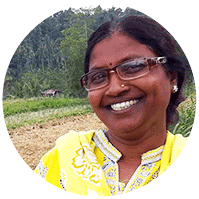
Shalini Rangare
Tuition Teacher & Sewing Teacher
I feel that working for Bodhicitta Foundation has given my life meaning. As a mother I have been blessed with two healthy children. But as a social worker, the whole world is my family. I am so proud to represent Bodhicitta at public events and to act as assistant manager at many functions. I believe in the power of a few committed people to change the lives of many, like a small rock sending ripples accross the water
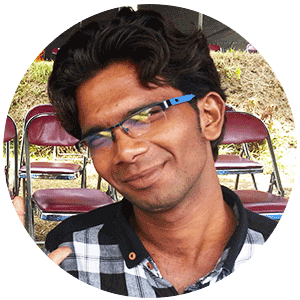
Mahendra Khobragade
Centre Manager
I really like my job. It feels good to empower poor people and make a difference. When I was younger I didn’t have good role models, but thanks to Bodhicitta Foundation, I have come a long way. I have completed a social work degree and enjoy going to work in the morning.
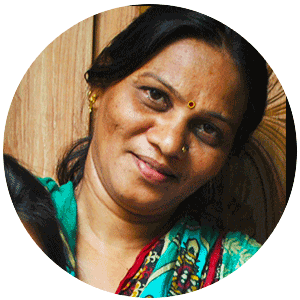
Wanita Khadse
Nutrition Specialist
I think nutrition and the 6000 meals we make every year for slum children make a huge difference to their lives. Food is life, so proper nutrition gives children a good chance at life, at reaching their potential and their dreams. Many of the staff of Bodhicitta Foundation India have also come from disadvantaged backgrounds. I have known hunger, and no child should have to know that, when in other places on earth we throw out perfectly good food.
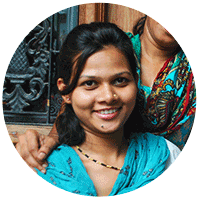
Manisha Khadse
Tuition Teacher
I have personally seen the struggles and inequality poor women and girls go through to get access to education and equal rights. I became determined to get an education and be financially independent. It’s a pleasure to help children grow and learn in a good way. Everyone has the potential for amazing things, we just need to water good seeds in them.
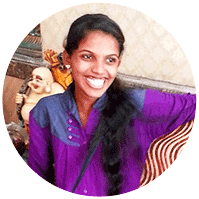
Pooja Koche
Tuition Teacher
I work part time as a tuition teacher for Bodhicitta Foudation, empowering children from poor families with education. I think knowledge is power. If people know their rights, if they can read legal documents and have self confidence, it’s much harder to bend their backs. No one wil give us our rights if we don’t stand up for them. Instilling a sense of confidence, love and self respect in the children is my contribution to a better and more just world.
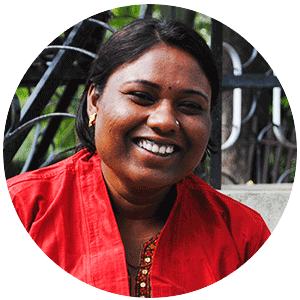
Vaishali Khamble
Warden
I am the first person in my family to finish high school and have a university degree. I can see our community has come a long way, from virtual slavery, to dignity. It is a great privelege to have a job aligned with what you most deeply value, to daily get up and do something that you know is making the world a better place. That is how I feel about our girl’s education hostel. I feel we are creating change makers that will return to their communities and sew big improvements
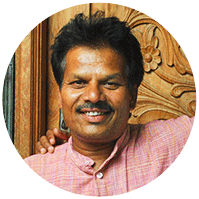
Maruti Khadse
Transport
I was a child worker. I didn’t finish my education. But I am so proud to work for an organisation that gives children and women dignity. My children are all educated and my daughters are independent and studying social work. I believe a better world will come, because I can see thanks to education and knowledge the next generation of our community have more freedom, access to resources and confidence. I hope our organisation gets bigger and bigger.
DR B.R Ambedkar & Some of the Communities We Work With
Dr Ambedkar is a very important figure for the history of human rights and justice in India and is a hero of the Mahar and Dalit (ex “untouchable”) communities. Born the 14th child in a mud brick house in Maharashtra, Dr Ambedkar had to sit outside the classroom listening from the verandah, could not pour his own drinking water and faced discrimination at every turn. This was at a time when Dalits often could not access village water, worked as peasants on the land of landlords and the majority were illiterate and could not enter a Hindu temple. Discrimination, lynching and rapes were common.

